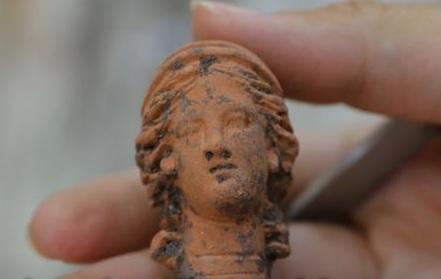An excavation led by Felix Pirson and assisted by Guler Ates has found Kybele terracotta figurines dating back to two millennia in and around the Bergama site, suggesting the cult of the Anatolian mother goddess was going strong during ancient times.
Eight new sacred sites and many figurines were found in and around the Bergama (Pergamon) ancient town near Izmir in Turkey. These terracotta figurines represent the goddess of fertility Kybele, going back 2,200 years.
The wide-scope excavations are being carried out with the collaboration of Turkey’s Culture and Tourism Ministry and the German Archaeological Institute in Bergama ancient city. During the excavations in Bergama, there were five religious areas found within city walls and three outside city walls. In these areas a multitude of fertility goddesses, or mother goddesses, Kybele figurines were found.
“These terracotta figurines were found in pristine natural locations,” says Assoc Prof Guler Ates, Celal Bayar University Archaeology Department faculty member. “The Kybele cult was people wishing for fertility of their lands, for their animals to not die, for their children to be healthy, for births to be easy and healthy,” she tells TRT World.
According to Ates there are hundreds of pieces of baked earth (‘terra cotta’ in Latin) which will be cleaned, with those in good condition going to the Bergama Museum, and those in lesser condition going to storage.
Archaeological sources suggest that while there are elaborate religious structures such as the Temple of Athena dedicated to Greek deities, the public also held religious rites in natural locations and offered sacrifices in the name of Anatolian fertility goddess Kybele. “We have located numerous Kybele figurines in and around Bergama, on mountains, on hills, at water sources, at caves, in many religious areas,” Ates says. “That was the most important belief for the common folk.”


Comment here